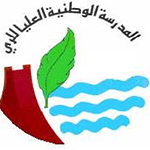Detailed introduction of the National School of Hydraulic Engineering, Blida, Algeria:
Introduction and Overview
The National School of Hydraulic Engineering, Blida is a non-profit public higher education institution located in the suburbs of Blida, Algeria. It offers bachelor's, master's and doctoral degree programs in multiple fields and has high professionalism and authority in hydraulic engineering and related fields.
History and Establishment
The school was established in 1972.
Nature of the institution
The school is a non-profit public higher education institution, coeducational, and officially recognized by the Ministry of Higher Education and Scientific Research of Algeria.
Strength of running a school
Faculty: It has a group of teachers with rich experience and strong professional ability in the field of hydraulic engineering, including experts and scholars with industry practical experience and academic research results, who can provide students with high-quality teaching and guidance.
Teaching achievements: It has trained a large number of outstanding hydraulic engineering professionals, who play an important role in Algeria's hydraulic, civil, environmental and other fields, and have made positive contributions to the country's hydraulic undertakings and infrastructure construction.
Educational philosophy
Focus on cultivating students' professional quality and practical ability in water conservancy engineering, emphasize the combination of theory and practice, and cultivate students' ability in water conservancy engineering design, construction, management, etc. through classroom teaching, practical internships, academic research and other methods, so that students have solid professional knowledge and practical ability to adapt to social needs. At the same time, it also focuses on cultivating students' innovative spirit and social responsibility.
Key laboratories and disciplines
Key disciplines: Water conservancy engineering is the core discipline of the school, covering multiple directions such as water resources development and utilization, water conservancy and hydropower engineering, farmland water conservancy engineering, hydraulics and river dynamics; environmental engineering is also one of the key disciplines, focusing on cultivating students' abilities in water pollution control, water resources protection, ecological restoration, etc.
Key laboratories: No public information on particularly well-known key laboratories has been found, but the school may have experimental teaching facilities related to water conservancy engineering experiments, environmental monitoring, etc.
Department
The school may have set up multiple colleges or departments around the fields of water conservancy engineering and environmental engineering, such as the School of Water Conservancy Engineering and the School of Environmental Engineering, each of which has different majors and curriculum systems. According to uni24k, the school has 5 departments, including water conservancy engineering and environment courses/projects, irrigation and drainage courses/projects, unconventional water reuse courses/projects, urban hydraulics courses/projects, and urban technology courses/projects.
Ranking
According to 4icu.org, the school ranks 49th in Algeria and 9351st in the world.
Expenses
According to Free-Apply.com, the tuition fee for international and domestic students is about US$300 per year.
Campus Environment
Teaching Facilities: It has modern teaching buildings, libraries, multimedia laboratories and other teaching facilities. The library has a rich collection of books, journals and databases related to water conservancy engineering, which provides sufficient material support for students' learning and research; the multimedia laboratory is equipped with advanced experimental equipment and software for students to conduct practical operations and experimental teaching.
Living Facilities: There may be student dormitories, canteens, supermarkets and other living facilities on campus to provide students with convenient living conditions. In addition, there may also be abundant living resources around the school to meet students' daily needs.
Natural environment: Blida is a large city with a population of 500,000-1,000,000. The campus is surrounded by beautiful natural environment and pleasant climate, providing students with a comfortable learning and living atmosphere.
-
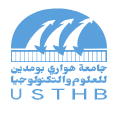
University of Sciences and Technology Houari Boumediene
-
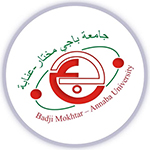
Badji Mokhtar University of Annaba
-
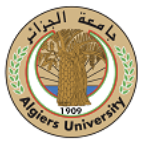
University of Algiers 1
-

University of Boumerdés
-

University of Sidi-Bel-Abbès
-
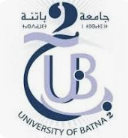
University of Batna 2
-

Univerisity of Tizi-Ouzou
-
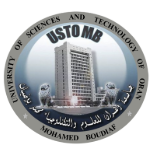
University of Science and Technology of Oran
-
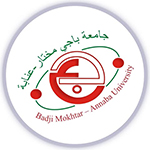
University of Annaba
-
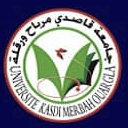
University of Ouargla
-

Mesoamerican University
-

Istmo University
-

Mariano Galvez University of Guatemala
-

Regional University of Guatemala
-

Galileo University
-

Francisco Marroquín University
-

Rafael Landívar University
-

University of the Valley of Guatemala
-

University of San Carlos of Guatemala
-

Technological Institute of Tlaxcala Plateau
-

Golfo University
-

Technological University of South Sonora
-

Technological University of Huejotzingo
-

Tizimín Institute of Technology
-

Chilpancingo Institute of Technology

